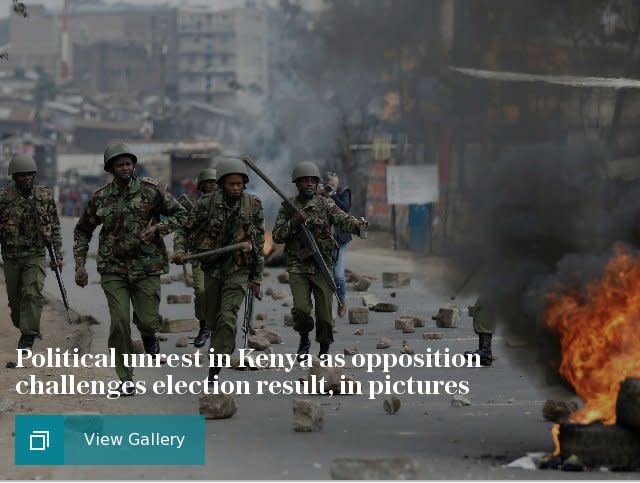Kenyan court overturns presidential election after ruling it was marred by 'illegalities'

Kenya’s supreme court on Friday nullified President Uhuru Kenyatta’s re-election, striking a stunning blow for judicial independence in Africa, humiliating Western observers and vindicating the county’s much-criticised opposition.
Ruling that Mr Kenyatta’s victory in the August 8 vote was marred by “irregularities and illegalities”, the court ordered a fresh vote to be held within 60 days - the first time judges have ever overturned an incumbent president’s victory in an African election.
Robed in red and black, the six judges on the bench upheld a petition by Mr Kenyatta’s challenger Raila Odinga, whose claim that systematic fraud had denied him victory was ridiculed by Western observers, who portrayed him as a sore loser.
The ruling prompted fury from the president, who accused the court of being in the pay of “whites”.
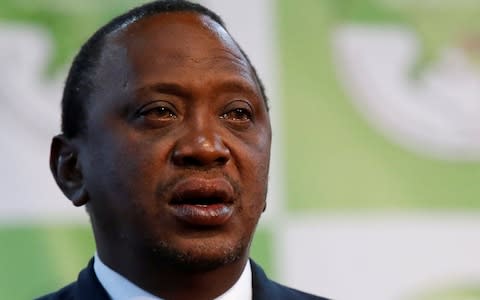
But for Mr Odinga, the loser of four presidential elections, it was a moment to savour. He was in court, allowing himself a smile as the chief justice, David Maraga, delivered his momentous ruling.
“The presidential election held on August 8 was not conducted in accordance with the constitution and applicable law, rendering the results invalid, null and void,” Mr Maraga told the courtroom, as he read out the four-to-two majority ruling.
Outside the building, as well as in slums across the capital Nairobi and in Mr Odinga’s strongholds in western Kenya, the crowds erupted in disbelieving joy.
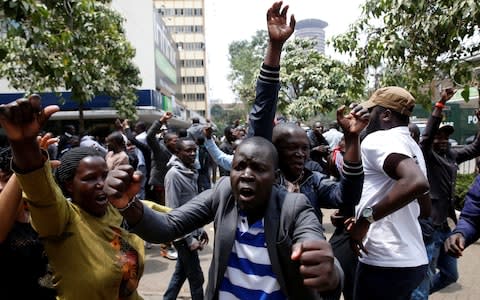
Three weeks ago, many of the same people had been running for their lives as police used live fire to crush protests triggered by the electoral commission’s official declaration of Mr Kenyatta’s victory.
At least 28 people were killed by the police, including a six-month old baby beaten into a coma from which she never recovered and a teenager hauled out from under his bed and bludgeoned to death in front of his parents.
But on Friday, the police seemed bewildered and unsure of themselves, briefly advancing on jubilant opposition supporters, chanting and waving branches on the streets outside the court, before retreating again and eventually disappearing altogether.
“We expected the worst and have been given the best,” said Japheth Onyango, a mechanic, as he joined the celebrations. “We have been vindicated and justified. The oppression of Kenya’s people has been ended by the stroke of a pen.”
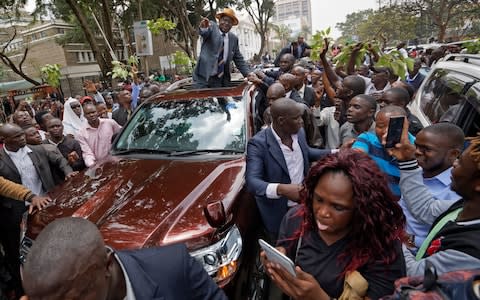
“People are just so, so happy,” added Dorothy Mwangale, a cleaner, beaming uncontrollably, tears brimming in her eyes.
The mood was in stark contrast to the sullen silence of the president’s supporters, who had also gathered publicly to celebrate what they believed would be confirmation of his victory.
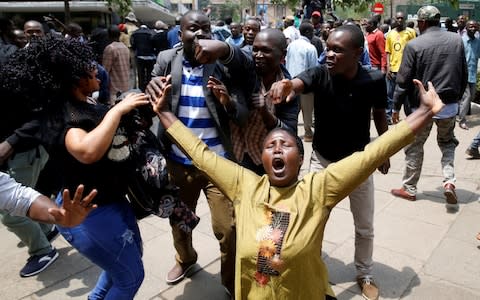
The disbelief was also etched on the president’s face itself.
Although he agreed to respect the ruling, Mr Kenyatta also upbraided the court saying: “Six people decided to go against the will of the people”.
Later, addressing supporters in Nairobi’s Burma Market, the president’s bitterness became even starker as he claimed his victory had been taken away from him by the chief justice “and his crooks”.
“This story of theirs is being paid by whites and other trash,” he said, before appearing to threaten the court.
“First we say we agree and accept … but they know that we are also men.
“Let them wait for us after the election.”
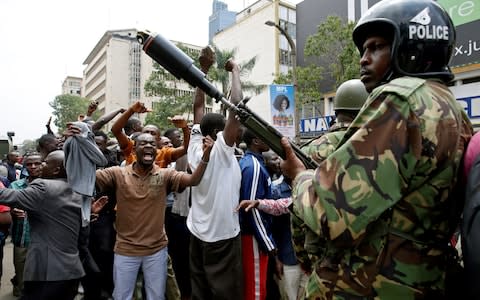
The court absolved the president of any involvement in any electoral fraud, laying the blame on the electoral commission for the opaque manner in which it conducted the count.
Although a detailed ruling is yet to be released, it is likely that the deciding factor was the failure by a quarter of polling stations to submit adequate supporting documentation for the results they filed to the electoral commission.
Mr Odinga welcomed the ruling as “precedent setting”, but immediately plunged the new election into uncertainty by demanding the dissolution and replacement of the electoral commission.
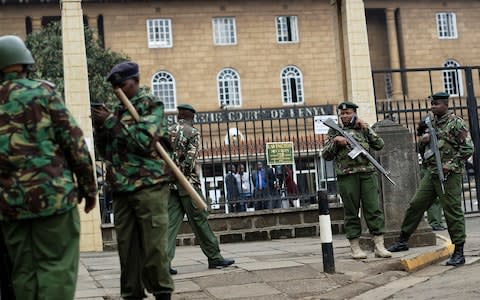
“We have no faith at all in the electoral commission as currently constituted,” he said outside the court. “They have committed criminal acts. Most of them belong in jail.”
Mr Odinga initially refused to mount a court challenge, arguing that the supreme court had proved itself a subservient tool of the executive after it rejected his petition five years ago to overturn Mr Kenyatta’s first election victory.
He capitulated only under international pressure after observers said they believed the election was credible.
John Kerry, the former American secretary of state and leader of one observer mission, called on Mr Odinga to concede as graciously as he had done following his defeat to President George W Bush in 2004.
Whatever the consequences of its decision, the supreme court has made legal and political history in Africa by making a ruling once believed unthinkable - one that could embolden other courts on the continent to follow suit.
When Mr Maraga became chief justice last year, he was little known and some observers questioned whether he had the stature and independence to stand up to Kenya’s ruling elite.
While his ruling will be debated for many years, Mr Maraga will be seen to have banished the equivocal reputation that long surrounded Kenya’s judiciary, establishing its authority as a genuinely independent and fearless arbiter over political disputes.
Kenya's dollar bonds, shilling fall after court nullifies election #SupremeCourtDecides#shilling#forex#Kenyahttps://t.co/nUco0V1d3qpic.twitter.com/3vvFvJtQNr
— John Ndiso (@johnalyst) September 1, 2017
